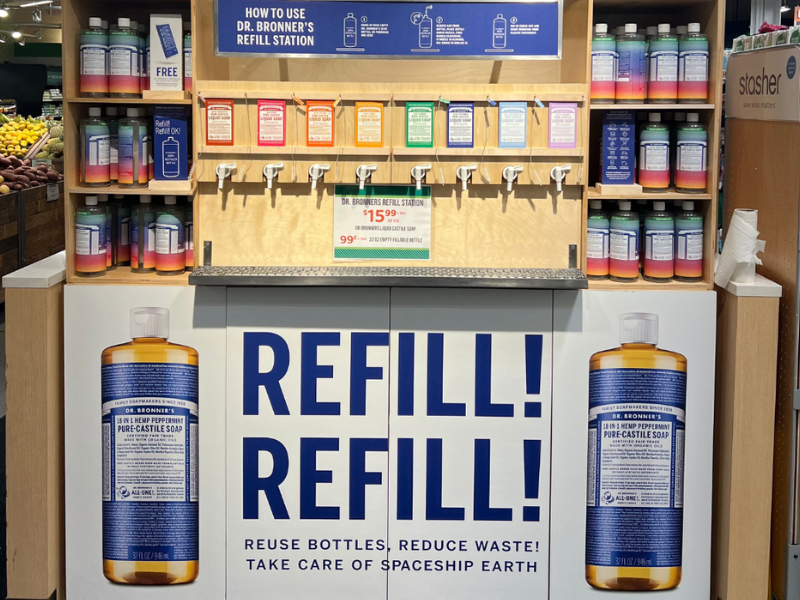Dr. Bronner’s Is Reducing Its Plastic Use

🌎 Dr. Bronner’s is taking bold steps to reduce plastic production and pollution. 🌎 How?
🌈 All of Dr. Bronner’s plastic bottles are 100% post-consumer recycled plastic, reducing new plastic production 🧴
🌈 The B Corp recently introduced a new paper soap refill carton. This carton is made with 80% less plastic and uses fewer fossil fuels, water, and mineral resources than glass, aluminum, and their existing 100% post-consumer-recycled plastic bottle.
🌈 Dr. Bronner’s is dedicated to refilling. They’ve even partnered with a kombucha company to provide soap on tap! 🧼 Search the store locator and filter for liquid soaps by bulk to reduce your plastic use, or use a bar soap if you’re looking for a personal hygiene product.
🌈 While they research how to transition more of their products to non-plastic materials, Dr. Bronner’s is practicing “insetting.” 💡 Insetting is the same concept as offsetting, but when the financial investments and environmental activities take place within a company’s own supply chain. For example, in 2022, Dr. Bronner’s began a pilot program in Asuom, Ghana, where their Bar Soap’s palm oil is produced and the infrastructure to collect plastic waste is lacking. Their pilot program works with supplier Serendipalm to create plastic-collecting jobs. That plastic is then recycled or downcycled locally. Dr. Bronner’s aims to inset their entire plastic footprint through similar programs. ♻️
🌈 Dr. Bronner’s has supported legislation like Senate Bill 54 and the 2021 Break Free From Plastic Pollution Act, which put pressure on companies like themselves to collect and recycle the plastic they produce. 🏛️ They were also major donors to the California Plastic Waste Reduction Regulations Initiative, which informed SB 54.
We are deeply grateful to partner with Dr. Bronner’s, appreciating how they step up to protect our collective future. For we’re all-one or none! 🌈 🌎
Read more about how Dr. Bronner’s is transitioning away from plastic here.
